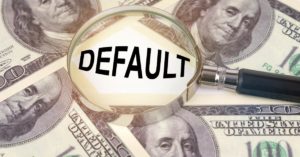An August 17, 2024 article, at oilprice.com, entitled, “A New Era for Nuclear Power in the US” describes US government funding and intervening to reopen closed or closing nuclear power electric generating plants (nuclear) to support their green transition policies from the 2022 Inflation Reduction Act (IRA).The IRA provides $6 billion financial support to nuclear power plants at risk of closure—$1.2 billion per year from FY2022 through FY2026. The new federal program is another example of government intervention through a subsidy or incentive to keep a nuclear plant operating when it is losing money.The article states, “The US government is supporting the reopening of the Palisades (Palisades) nuclear power plant in Covert, Michigan, the first such effort in the
Read More »Articles by Stephen Anderson
Digital Currency, Metal Recycling, and Loss of Liberty
November 13, 2024In July 2023, the Federal Reserve Bank (FRB) announced FedNow as their foray into the US dollar central bank digital currency (CBDC) payment service. The service is offered to insure immediate CBDC payments are made to a registered individual and/or business buying and selling products and/or services. The FRB offers CBDC as a quick payment convenience to Americans when many see it as a subtle expansion of FRB monetary management power and control.Many dollar payments today are made through an electronic funds transfer system managed by the National Automated Clearinghouse Association known as Automated Clearing House (ACH). Sent and received payments are completed in one to two business days. ACH was officially established in 1974. US scrap metal recycling
Read More »FISA: How a Watergate-Era “Reform” Turned into a Mechanism of Massive State Surveillance
September 4, 2024What is the Mises Institute?
The Mises Institute is a non-profit organization that exists to promote teaching and research in the Austrian School of economics, individual freedom, honest history, and international peace, in the tradition of Ludwig von Mises and Murray N. Rothbard. Non-political, non-partisan, and non-PC, we advocate a radical shift in the intellectual climate, away from statism and toward a private property order. We believe that our foundational ideas are of permanent value, and oppose all efforts at compromise, sellout, and amalgamation of these ideas with fashionable political, cultural, and social doctrines inimical to their spirit.
[embedded content]
Read More »FISA: How a Watergate-Era “Reform” Turned into a Mechanism of Massive State Surveillance
August 28, 2024In 50 years since the Watergate scandal—famously resulting in President Richard Nixon’s resignation—there has been a flood of “post-Watergate morality,” in which Congress pushed through a number of “reforms” designed to curb government abuses. The Nixon Administration exerted great effort to conceal its organization of the break-in, as Nixon and his aides authorized a plan instructing the Central Intelligence Agency (CIA) to interfere with the Federal Bureau of Investigation (FBI) Watergate investigation. Their actions were an abuse of presidential power and a deliberate obstruction of justice.A newspaper article published after Nixon’s resignation detailed the CIA Watergate cover-up, sourced from the Watergate prosecutor’s office, the FBI, and CIA staff. The
Read More »Watergate-era “reforms” made the federal government even stronger
August 8, 2024Today is the fiftieth anniversary of the resignation of President Richard Nixon, who later was pardoned of all Watergate crimes by President Gerald Ford. The Watergate break-in occurred at the Democratic National Committee headquarters office in June 1972 at the Watergate building in Washington, DC, during a presidential election year. The Nixon Administration exerted great effort to conceal its involvement in the break-in. The United States Department of Justice and press reporters (Carl Bernstein and Bob Woodward) found five people involved in the break-in received thousands of dollars of hush money from the Committee to Reelect the President, which was the fundraising organization of President Nixon’s reelection campaign.Many of Nixon’s administration staff
Read More »Chop the Federal CHIPS Act
July 12, 2024What is the Mises Institute?
The Mises Institute is a non-profit organization that exists to promote teaching and research in the Austrian School of economics, individual freedom, honest history, and international peace, in the tradition of Ludwig von Mises and Murray N. Rothbard. Non-political, non-partisan, and non-PC, we advocate a radical shift in the intellectual climate, away from statism and toward a private property order. We believe that our foundational ideas are of permanent value, and oppose all efforts at compromise, sellout, and amalgamation of these ideas with fashionable political, cultural, and social doctrines inimical to their spirit.
[embedded content]
Read More »Chop the Federal CHIPS Act
July 1, 2024The Creating Helpful Incentives to Produce Semiconductors (CHIPS) Act passed by the United States Congress and signed into law by President Joe Biden in August 2022 funds the CHIPS for America Act that was initiated under the 2021 National Defense Authorization Act signed into law by President Donald Trump in January 2021. The 2021 legislation authorized the Department of Commerce, Department of Defense, and Department of State to develop onshore domestic manufacturing of semiconductors. The CHIPS Act looks good on paper, but its fiscal and regulatory reality is another unnecessary federal economic intervention.An excerpt from a report entitled “Frequently Asked Questions: CHIPS Act of 2022 Provisions and Implementation” from the Congressional Research Service
Read More »Personal Medical Bankruptcy: Made in DC
April 9, 2024[unable to retrieve full-text content]When the government wants to make something more affordable, that usually means new subsidies, laws, and regulations that drive up the real price. Higher medical prices will mean more medical bankruptcies.
[embedded content]
Tags: Featured,newsletter
Read More »US States Have a Long History of Defaulting
March 8, 2024Tu ne cede malis, sed contra audentior ito
Website powered by Mises Institute donors
Mises Institute is a tax-exempt 501(c)(3) nonprofit organization. Contributions are tax-deductible to the full extent the law allows. Tax ID# 52-1263436
[embedded content]
Tags: Featured,newsletter
Read More »US States Have a Long History of Defaulting
February 23, 2024The American bankruptcy show of the twenty-first century continues unabated with federal and state government spending. History reveals that some states have defaulted through not meeting a required bond payment, leaving the bondholders and that state’s taxpayers with a debt problem. Today, we might call a state government bond payment default a bankruptcy.
Many bankruptcy filings today are governed by Chapters 7, 9, 11, and 13 of the United States bankruptcy code, which are supervised, reviewed, and completed by federal bankruptcy courts. Federal bankruptcy law does not allow a state to declare bankruptcy, however. Federal law also prohibits individual states from printing their own money as a way out of debt. Government (state and federal) money issued and
America’s Corn Crop Comes from “Corny” Subsidies
December 29, 2023America’s famous Corn Belt should better be known as the nation’s Subsidy Belt.
Original Article: America’s Corn Crop Comes from "Corny" Subsidies
[embedded content]
Tags: Featured,newsletter
Read More »America’s Corn Crop Comes from “Corny” Subsidies
December 19, 2023Corn is grown in the United States as a staple crop for human food, as cattle feed, and as input for conversion to corn ethanol. The federal laws and rules for the corn ethanol industry were initiated in the 1970s and have continued today with ethanol subsidies. The federal corn ethanol sales pitch is for the United States to gain energy independence by lowering vehicle tailpipe emissions through the required blending of ethanol into the nation’s gasoline supply, resulting in reduced greenhouse gas (carbon dioxide) emissions.
Corn Belt growers and their federal representatives embrace and push federal corn subsidies and other interventions into law. The Corn Belt is centered in the US Midwest states of Illinois, Indiana, and Iowa.
Corn ethanol is energy intensive
What Would Mises Think? Austria Is Applying (Some) Austrian Economics
December 17, 2023While Austria is not the free-market republic Ludwig von Mises hoped it would be, the country has made many steps in the right direction, freeing markets and protecting private property.
Original Article: What Would Mises Think? Austria Is Applying (Some) Austrian Economics
[embedded content]
Tags: Featured,newsletter
Read More »What Would Mises Think? Austria Is Applying (Some) Austrian Economics
December 1, 2023Austria is one part of the name “Austrian economics.” How has the country of Austria prospered by applying Austrian economic concepts? The nation regained full sovereignty in 1955. Their form of government is a parliamentary coalition with a prime minister as head of state and a ceremonial office of president.
How would Ludwig von Mises view Austria today implementing Austrian economics? He would not recognize the country he fled in 1934 ahead of the German war machine and its purposeful discrimination of people of Jewish descent. He would probably be thankful Austria’s Jewish population is thriving. He would also see its standard of living and economy flourishing today.
Austria has large services and industrial sectors, and it has a small, highly developed
Federal Flood Insurance Drains Taxpayers
November 13, 2023Federal flood insurance was created ostensibly to provide insurance to people who live in flood-prone areas. Not surprisingly, it subsidizes bad home-building decisions and wastes billions of dollars.
Original Article: Federal Flood Insurance Drains Taxpayers
[embedded content]
Tags: Featured,newsletter
Read More »Oil Export Bans Make for Crude Politics
October 15, 2023In the wake of the Arab Oil Embargo of 50 years ago, Congress banned U.S. export sales of crude oil. The results were different than what government "experts" imagined.
Original Article: Oil Export Bans Make for Crude Politics
[embedded content]
Tags: Featured,newsletter
Read More »Oil Export Bans Make for Crude Politics
September 26, 2023The Organization of the Petroleum Exporting Countries (OPEC) embargo on sales of crude oil from their member countries to the United States was a response to US support for Israel in the October 1973 Yom Kippur War against invading Egyptian and Syrian military forces. This oil embargo raised barrel prices on the open market and, when combined with US price controls, reduced the amount of oil available in the US for refining into gasoline, leading to domestic gasoline shortages and higher prices at the pump.
The federal government banned oil exports in December 1975 with the intent of preserving it for domestic refiners to produce gasoline, diesel, and jet fuel. The ban did not function as intended and was lifted by President Obama in December 2015, forty years to
Thatcher’s New Style of Government
September 6, 2023The possible bankruptcy of Thames Water Company in Great Britain brings to mind the heady days 40 years ago when Margaret Thatcher’s government was privatizing state-owned enterprises, including TW. Not all privatization stories have happy endings.
Original Article: "Thatcher’s New Style of Government"
[embedded content]
Tags: Featured,newsletter
Read More »How Conscription Ended Fifty Years Ago
August 31, 2023For the past fifty years, the US has not had a military draft. Unfortunately, the end of conscription did not mean US military interventions abroad ended.
Original Article: "How Conscription Ended Fifty Years Ago"
[embedded content]
Tags: Featured,newsletter
Read More »States Can Curb Federal Power through “Soft Secession”
August 8, 2023The use of interstate compacts by US states shows that the states don’t need the federal government to dictate or manage interstate relations.
Original Article: "States Can Curb Federal Power through "Soft Secession""
[embedded content]
Tags: Featured,newsletter
Read More »How Conscription Ended Fifty Years Ago
August 7, 2023United States military conscription, or the draft, ended on January 27, 1973, with the winding down of the Vietnam War. The draft law was due to expire at the end of June 1971. But US President Richard Nixon decided it needed to continue and asked Congress to approve a two-year extension. In March 1973, 1974, and 1975, the Selective Service assigned draft priority numbers for all men born in 1954, 1955, and 1956, in case the draft was extended—but it never was.
Nixon thought ending the draft could be an effective political weapon against the burgeoning antiwar movement. In his 1968 presidential campaign, he had promised to end the draft. During his time out of office, he had become interested in the prospect of an all-volunteer force, being influenced by Martin
States Can Curb Federal Power through “Soft Secession”
July 13, 2023Former Mises Institute president Jeff Deist wrote on the concept of “soft secession” in September 2021. The article talks about how left-leaning states have an opportunity to embrace an abundance of progressive policies for their citizens—without leaving an open door for real violence to occur—through the pursuit of soft state secession. Some people in the left-thinking world are starting to get it. This soft secession principle applies to those living in the right-leaning states as well.
The article also talks about how people from certain ideological and geographic perspectives in the United States are embracing soft secession by moving to a state that more reflects their worldview. The 2020 US Census data and the currently updated estimated census figures show
In the Event of an Official US Bankruptcy
May 29, 2023Economically speaking, the US government is bankrupt even if the government won’t admit what is obvious. But how would an actual bankruptcy proceeding go?
Original Article: "In the Event of an Official US Bankruptcy"
[embedded content]
Tags: Featured,newsletter
Read More »In the Event of an Official US Bankruptcy
May 12, 2023The current known federal debt is $31.7 trillion according to the web site, US Debt Clock, which is about $94,726 for every man, woman, and child who are citizens as of April 24, 2023. Can you write a check right now made payable to the United States Treasury for the known share of the federal debt of each member of your family after liquidating the assets you own?
A report released by the St. Louis Federal Reserve Branch on March 6, 2023, stated a similar figure for the total known federal debt of about $31.4 trillion as of December 31, 2022. The federal debt size is so great, it can never be repaid in its current form.
Some of us have been in or known families or businesses who had financial debt that could not be paid, when adjustments like reducing expenses,








